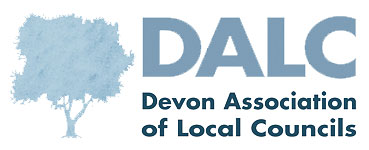Changes to Permitted Development Rights | Have your say!
The government is proposing further changes to permitted development rights, and we would like your views on how we should respond

Permitted Development Rights are rules which allow certain types of works to be carried out without the need for planning permission. They derive from permissions granted by Government, rather than the local authority.
The Government is proposing further changes to permitted development rights, including:
- A new permitted development right to support temporary recreational campsites.
- Changes to the existing permitted development rights for solar equipment and a new permitted development right for solar canopies.
- Amendment to the existing permitted development right which allows local authorities to undertake certain development. This change would allow bodies to undertake the work on behalf of the local authority.
- Changes to the existing permitted development right allowing for the temporary use of buildings or land for film-making purposes.
DALC has held a longstanding view which does not support an across-the-board extension of permitted development rights in the planning system. We believe that decisions about development should be made at the local level, and policies should be the prerogative of local authorities in their Local Plans, or Neighbourhood Planning Groups.
However, we recognise a blanket rejection to proposals would not be supportive of other positions we hold such as initiatives to support the climate emergency and the rural economy.
Therefore, we are asking members for their views in our quick snapshot survey. Your views will help us to determine whether to respond to the consultation, and to what degree we support or oppose the proposals.
Our snapshot survey will close on Wednesday 12 April 2023.
Any council concerned about the proposals can also respond directly to the consultation, which closes on 25 April 2023.
Related Content
- Read DALC’s Planning Policy Statement
- Get involved in DALC’s Committees
What resources would be helpful to your council in a community emergency?
What resources would your council find helpful, should an emergency situation like the early lockdowns of the COVID-19 pandemic happen again?

The early stages of the pandemic were a challenging time for councils looking to help their communities and seeking advice on how to do so in a novel and rapidly changing situation.
In collaboration with Devon Communities Together, DALC is running a survey about what resources councils would find useful to assist them in helping their communities in an emergency. This work, funded by the Devon Recovery Co-ordination Group, will inform a wider project on how the public sector and voluntary community and social enterprise (VCSE) sector work together in Devon.
This short survey is about what resources your council would find helpful, and about the possibility of online resources for Devon based on existing ones used in North Yorkshire.
The closing date for the survey is Wednesday 8 March 2023. If you have any queries or issues regarding this survey, please contact DALC’s Policy Officer.
Share your views in our short surveyDALC Member Survey 2022
You don’t have permission to view the content
Have your say | Model Code of Conduct consultation

The Local Government Association is consulting on a proposed national model member code of conduct and we want you to share your views.
In January 2019, the Committee on Standards in Public Life released a report on ethical standards in local government. This included a number of recommendations, including a recommendation that the Local Government Association (LGA) should create an updated national model code of conduct in consultation with other tiers of local government.
The new model code of conduct has now been completed and is open for consultation. The LGA welcomes views from both Councillors and Officers, and we urge all our members councils to take the time to respond to this important consultation.
Ethical standards in local government are essential; they help maintain public confidence in local decision making and are critical to protecting local democracy. NALC is asking the Committee on Standards in Pubic Life to publish a timetable for reviewing progress on the implementation of the report’s other recommendations (such as effective sanctions and compulsory training). Although matters such as sanctions are important, they are not the scope of this consultation at this time.
This topic continues to be of high priority for us and our national association and we hope that our member councils are able to respond to the consultation.
Related Links
Find out more about the LGA’s consultation work, including summer webinars on the model code.
Read more about Councillor’s interests in the ‘Meetings and Procedures’ pages of our Knowledge Bank.
Watch videos on the Nolan Principles of Public Life
New survey on the financial impact of Coronavirus

The financial impact of coronavirus is effecting parish and town councils across the Country. NALC is surveying councils to better understand the impact.
NALC are keen to understand the financial impact of coronavirus on local councils so they can gather evidence to present to the government. This will help support their calls for financial assistance to the sector. They have issued a survey, and we would really like to see as many councils as possible completing it. Please fill it in as soon as you can, the deadline is the 24th April.
The survey includes questions on precept, staffing and income so you may want to have that data to hand. It’s vital that NALC has this information, particularly from councils who are struggling with financial difficulties.
Links
Find out more about the work of the National Association of Local Councils
Keep up-to-date with the latest guidance on Coronavirus, including financial support for communities, in our Knowledge Bank.
Help NALC with their ground-breaking research on dementia

NALC have teamed up with the University of Plymouth to undertake research on dementia in parish and town councils. They believe that councils play an important role in communities to find solutions to help tackle the effects of dementia.
The research will help find out what local councils are already doing in their communities to help put together a joint report summarising what councils are doing and making recommendations on how you can support your communities.
Cllr Sue Baxter, NALC Chairman, said: “This cutting-edge research led by Professor Ian Sherriff BEM (academic partnership lead for dementia at UoP) is an interesting opportunity to get more insight on what local councils are soing. But more importantly, on how we can support them to level-up and help the most vulnerable in their communities”.
There are currently 850,000 people in the UK living with dementia. It can put a strain on health services and for families and carers. Dementia sufferers can struggle with loneliness, confusion and isolation. It is especially important for those in rural areas that local councils create a community where their residents can be active and feel safe.
We know many of our Devon councils are already engaged in schemes to support their communities with dementia, including dementia friendly parishes, such as Dementia Friendly Parishes in the Yealm and Great Torrington. Please take the survey to let NALC know what you’ve been doing.
Links
Find out more about the work of the National Association of Local Councils
Have your say: NALC elections survey
The National Association of Local Councils (NALC) is researching the local elections in May this year to examine the elections process for parish and town councils.

Following the May 2019 local (town and parish) elections, the National Association of Local Councils (NALC) are undertaking research based on the experiences of councillors, councils and county associations. A mix of qualitative and quantitative survey questions will be given to county associations and clerks to answer and distribute. The qualitative data gathered will give councils and councillors a chance to describe their personal experiences (good and bad); while the quantitative data collected will give a statistics-based overview of the local elections.
NALC aims to gather the voices and experiences from different levels of local government: individual councillors, councils and county associations. In addition to experiences gathered from diverse geographic locations around the country and from a large size range of council. The research gathered will also obtain more information about councillors themselves such as their motivations for running for election, their use of election materials and how they promoted the election in their communities.
NALC will be placing this survey research in conjunction with additional quantitative data gathered from district and borough councils’ websites, revealing; how many seats were won through a contested election; the number of co-opted councillors; and the number of vacant seats on local councils. Overall, this research has several targeted audiences which will highlight a range of experiences. Placing first-hand experiences in a context of quantitative analysis will produce an in-depth picture of the 2019 May local elections. NALC expects that this research will uncover positive as well as negative experiences and will be used by the entirety of local government as a springboard to promote the next elections for all local councils. NALC aims to promote the election process as an important part of being the first tier of government and suggest ways that councils can encourage more members of the public to stand for election.
Survey for clerks to fill in: https://www.surveymonkey.co.uk/r/GC5TVYF
Have your say: NHS long term health plan for Devon
#Bettertogether
Help shape the future for health and care in Devon by taking part in Devon Clinical Commissioning Group’s latest engagement survey.

You may be aware that on the 11 July the NHS in Devon launched an engagement process for the long term plan for Devon. Called Better for you, Better for Devon the plan will make sure Devon’s NHS is fit for the future, providing high quality care and better health outcomes for people and their families, through every stage of life.
They are asking the public to share their views through an online survey which can be found at the following link – https://www.surveymonkey.co.uk/r/BetterDevon – they are also encouraging participants to take part and use their Twitter account to highlight the survey to others in your community, a draft tweet is set out below should you wish to use it –
I’ve completed the @NHSDevonCCG survey to help shape the future for health and care in Devon. Complete it to have your say https://www.surveymonkey.co.uk/r/BetterDevon #betterdevon
You may find the following links to Public Health information useful, the websites provide demographic information across a range of different geographical areas.
